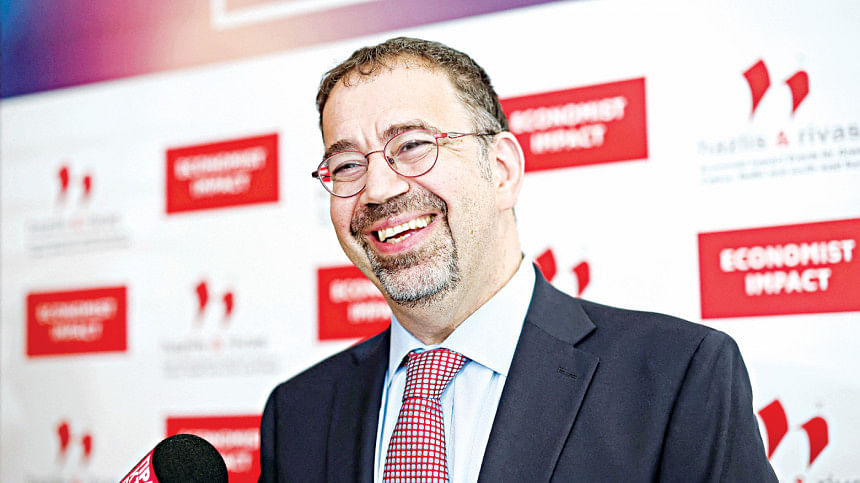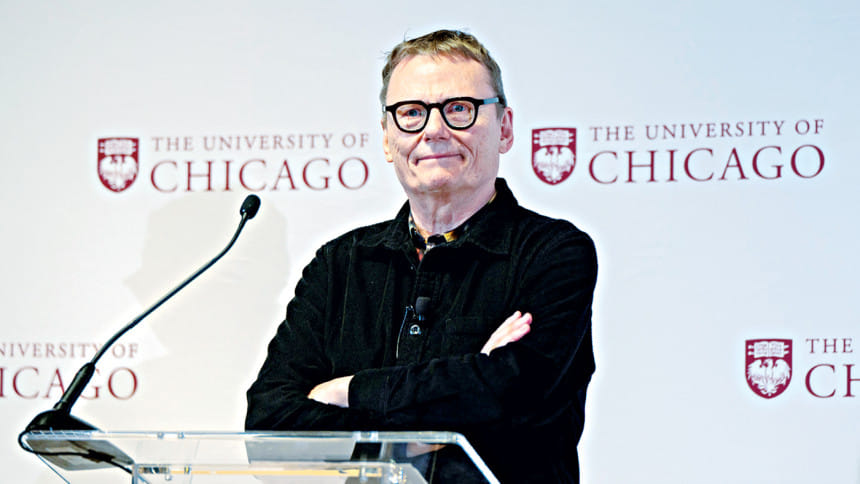Nobel prize brings global inequality back in focus

The Nobel committee has put the spotlight back on global inequalities. Bestowing its prestigious economics prize on Daron Acemoglu, Simon Johnson and James A Robinson, is a reminder that income disparities among and within nations are just as important as climate change, the AI "revolution" and ageing societies.
It is a much-needed wake-up call. The wealthiest 20 percent of the world's countries are now around 30 times richer than the poorest 20 percent, the Royal Swedish Academy of Sciences noted. And the gap is persisting even though poor countries have become richer.
The newly minted Nobel winners have provided compelling evidence of why inequalities among nations arise and persist. Their findings, detailed in "Why Nations Fail", the 2012 book by Acemoglu and Robinson, is that institutions and politics are key.
The book's conclusions – backed up by impressive empirical evidence ranging from ancient Rome to modern-day Nogales, a city split between Arizona and Mexico – is that "inclusive institutions" make countries richer. Democracy, the rule of law and the protection of property rights distinguish those systems from "extractive" arrangements where a small ruling class owns most resources and wealth.

At a global level, these extractive systems are alive and well. The poorest half of the world's population owned just 2 percent of global wealth in 2021 while the richest 10 percent controlled 76 percent of it, according to the World Inequality Report.
Admittedly, the gap between average incomes in the richest 10 percent of countries and those in the poorest 50 percent has dropped from more than 50 times in 1980 to less than 40 recently, but it is still huge. And inequality within countries has almost doubled in the same period.
Acemoglu, who like Johnson teaches at the Massachusetts Institute of Technology, and Robinson, who is a professor at the University of Chicago, have had some trouble explaining why some countries with less-than-democratic systems, like Singapore and China, have become much wealthier.
Nevertheless, their Nobel prize will refocus attention on an issue that risks taking a back seat to other global challenges – like the fight against climate change and the developed world's demographic time bomb – and fascinations such as the rise of AI, which Acemoglu has criticised.
But their award is important for another reason. Next month's US presidential election could strain some of the democratic foundations of the world's largest economy. All the more timely, then, for the Nobel committee to reward research that underscores the importance of robust institutions.
Daron Acemoglu, Simon Johnson and James Robinson won the 2024 Nobel economics prize "for studies of how institutions are formed and affect prosperity", the Royal Swedish Academy of Sciences said on Oct. 14.

The prestigious award is the final prize to be given out this year and is worth 11 million Swedish crowns ($1.1 million). "Reducing the vast differences in income between countries is one of our time's greatest challenges. The laureates have demonstrated the importance of societal institutions for achieving this," said Jakob Svensson, chair of the Committee for the Prize in Economic Sciences.

 For all latest news, follow The Daily Star's Google News channel.
For all latest news, follow The Daily Star's Google News channel. 



Comments